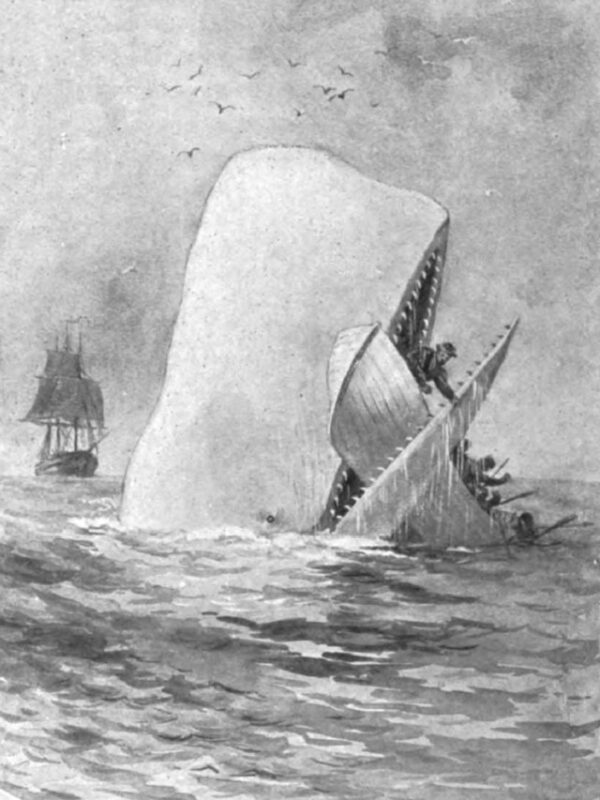The sinking of the Essex on November 20, 1820, stands as one of the most dramatic and consequential maritime disasters in history, an incident so shocking that it would inspire one of literature’s greatest novels. Departing from Nantucket, Massachusetts, the Essex was a whaling ship on a routine voyage when it encountered a massive sperm whale in the South Pacific. In an unforeseen and unprecedented act of aggression, the whale attacked the ship, ultimately sinking the vessel and leaving the crew stranded in the ocean.
The Essex had left her home port on the island of Nantucket, Massachusetts, United States, more than a year earlier. Nantucket and the mainland Massachusetts town of New Bedford were the whaling capitals of the world, sending out hundreds of ships and sailors across the ocean every year. Whaling was a lucrative business. Sperm whales, the species sought by the Essex and most other whalers of the time, were valued for both their blubber and waxy oil found in their huge heads. These substances were refined into oils that were used in candles, cosmetics, and lubricants for machinery. Whaling fleets had radically reduced sperm whale populations in the Atlantic Ocean, and the Essex had planned on a two-and-a-half year voyage to the rich “whaling grounds” of the South Pacific, writes National Geographic.
On November 20, the Essex encountered a pod of whales, and her small whaleboats set off to harpoon the animals and tow them back to the ship for processing. After harpooning one whale, the small, open whaleboat was pulled by the giant animal in what was nicknamed a “Nantucket sleigh ride.” As her captain watched from on deck, the Essex herself—238 tons, 27 meters (87 feet)—was forcefully, purposefully rammed by an enormous sperm whale separated from the pod. There was nothing the crew could do about it—the animal was bigger, stronger, and had much, much greater agility than the ship. The ship sank, leaving 20 or 21 survivors in three leaky whaleboats. The survivors were more than 1,900 kilometers (1,200 miles) from the nearest islands (the Marquesas), without adequate food or freshwater. The boats were separated and most men resorted to cannibalism before being rescued months later. Of the 20 or 21 crew members who left Nantucket, eight survived. Most likely, so did the whale.
Herman Melville, drawing upon the accounts of the Essex and the subsequent trials of its crew, crafted his magnum opus, “Moby-Dick.” Published in 1851, Melville’s novel weaves a complex narrative around the relentless pursuit of a giant white whale by the vengeful Captain Ahab. The novel draws extensively from the actual events of the Essex, transforming the story into a symbolic and allegorical exploration of the human condition, the nature of obsession, and the clash between man and the untamed forces of the natural world.
The sinking of the Essex and the survival ordeal of its crew left an indelible mark on Melville’s imagination. The terror and awe inspired by the real-life encounter with the whale fueled the creation of the mythical white whale, Moby Dick, in the novel. The characters in “Moby-Dick” reflect the psychological and physical traumas experienced by the Essex survivors, adding depth and authenticity to Melville’s narrative. The novel, in turn, contributed to a deeper cultural understanding of the risks and mysteries associated with whaling and the sea, ensuring that the legacy of the Essex would endure far beyond the pages of historical records.
Melville’s “Moby-Dick” went on to become a seminal work in American literature, exploring themes of revenge, fate, and the inscrutable power of the natural world. The sinking of the Essex served as a real-life inspiration that fueled Melville’s creative genius, transforming a tragic maritime disaster into a timeless exploration of the human spirit and its confrontation with the enigmatic forces of the deep.



